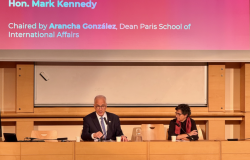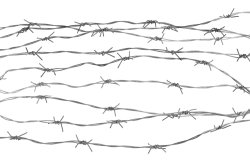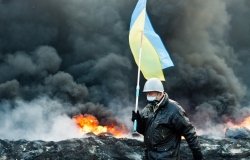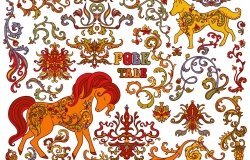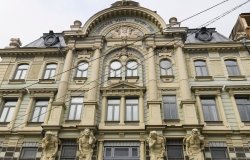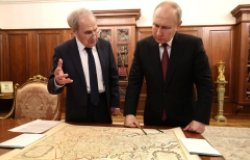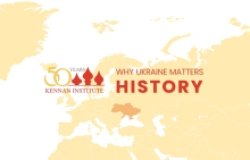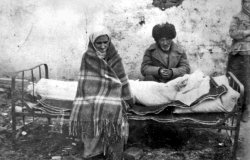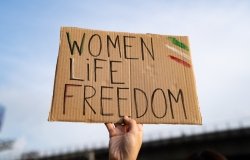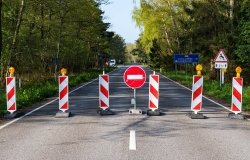ID1974/Shutterstock.com
Victory Day Celebrations During Russia’s War of Aggression
Overview
Under Putin’s regime, Victory Day became a focal point of Russia’s national identity and a symbolism-packed event, whose underlying messages of heroism and victimhood seemed to unite most Russians. However, Russia’s war of aggression against Ukraine throws much of this into question, at least for a portion of Russian society. What will Victory Day commemorations look like this year? What messages will the Kremlin seek to communicate as it looks to shore up support for its war in Ukraine? What impact will it have for Russians’ sense of national identity? We addressed these questions and more in this discussion.
Selected Quotes
Ivan Kurilla
"Russia was on the right-side during World War II, but now Russia is definitely not on the right side."
"The Russian propaganda uses the language of what happened in World War II to explain to the people what is happening in Ukraine."
"In Putin’s Russia, there was a change in language and the victory of the Soviet Union against the Nazi regime in World War II became little by little the victory of Russia."
Alexandra Arkhipova
"Russia after February 24th is a field of semiotic guerilla warfare trying to break down the cordon sanitaire with semiotic tools."
"These semiotic tools are punishable and are considered criminal in certain cases."
"It is a huge attempt at censorship not to pronounce the number of deaths." Especially the young sailors who died in the Battle of Moscow. Most of them were declared "lost" in the sea.”
Maxim Trudolyubov
"The remembrance of the fallen during World War II somehow allows the majority of us to feel good historically, and that ended with Putin’s war against Ukraine."
"The symbolic power of the century has effectively shielded Russian society from confronting its own history. This symbolic protecting screen is broken now and Russia won’t be able to rehabilitate itself as a member of the global community. "
Speakers
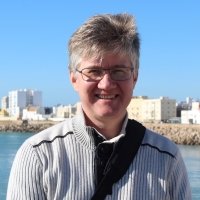
Ivan Kurilla
Professor, History and International Relations; Director, Department Development Partnership Program, Academic Director of the IMARES program, European University at St. Petersburg, Russia

Alexandra Arkhipova
Forschungsstelle Osteuropa an der Universität Bremen

Maxim Trudolyubov
Editor-at-Large, Meduza
Hosted By

Kennan Institute
The Kennan Institute is the premier US center for advanced research on Eurasia and the oldest and largest regional program at the Woodrow Wilson International Center for Scholars. The Kennan Institute is committed to improving American understanding of Russia, Ukraine, Central Asia, the South Caucasus, and the surrounding region though research and exchange. Read more
Thank you for your interest in this event. Please send any feedback or questions to our Events staff.



